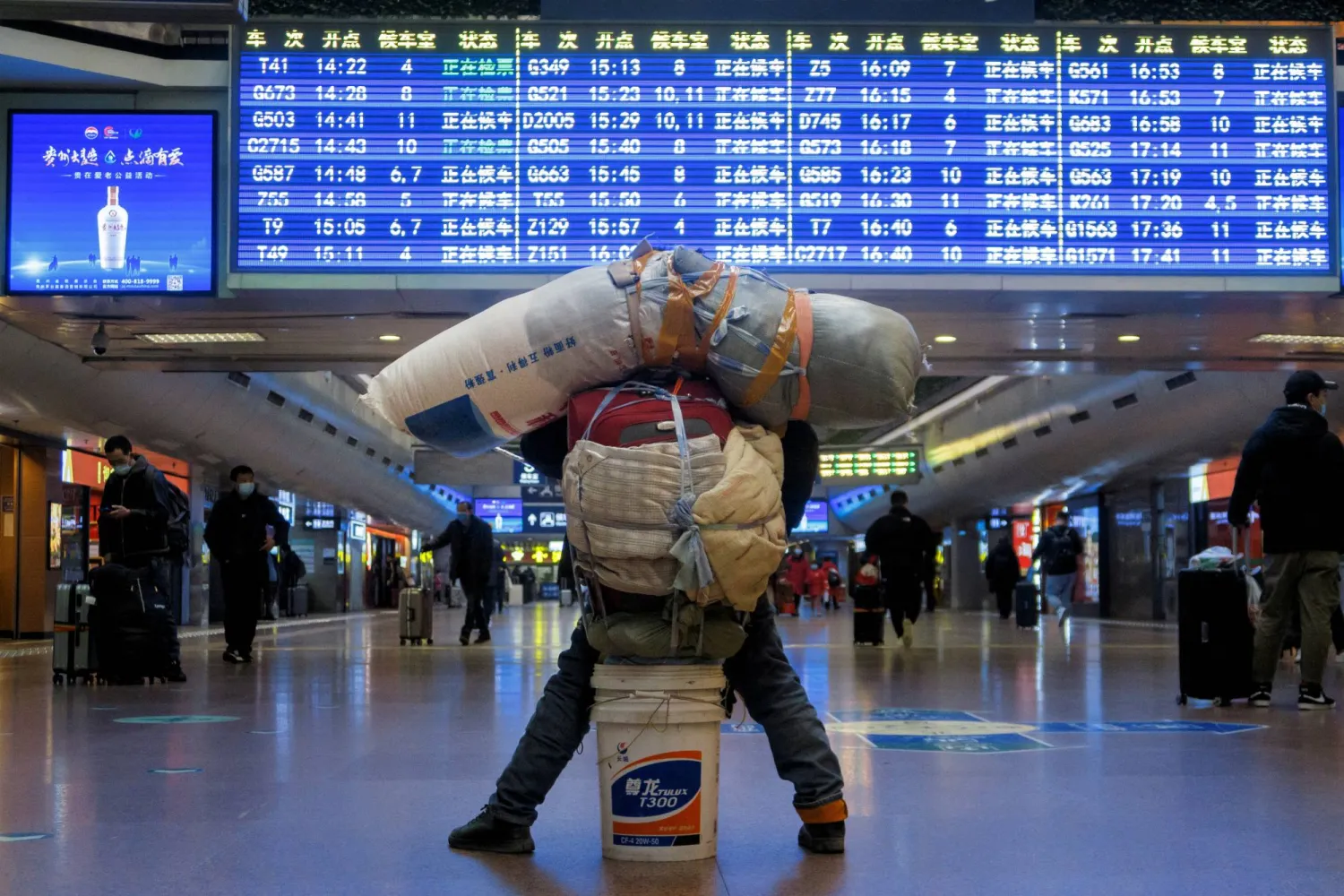China will spur domestic demand and consolidate and enhance the economic recovery in 2024, the Politburo, a top decision-making body of the ruling Communist Party, was quoted by state media as saying on Friday.
The government has in recent months unveiled a flurry of measures to shore up a feeble post-pandemic economic recovery that has been held back by a property crisis, local government debt risks, slow global growth and geopolitical tensions.
Ratings agency Moody's slapped a downgrade warning on China's credit rating on Tuesday, saying costs to bail out debt-laden local governments and state firms and control its property crisis would weigh on the growth outlook of the world's second-largest economy.
According to Reuters, analysts believe the government will have to unveil more stimulus to support the economy, which still faces headwinds.
China will continue to implement a proactive fiscal policy, which will be moderately strengthened, and implement a prudent monetary policy, which will be "flexible, moderate, precise, and effective", state media quoted the Politburo as saying.
The meeting, which was chaired by President Xi Jinping, also said the country will enhance the consistency of macroeconomic policies, the official Xinhua news agency reported.
China will "effectively enhance economic vitality, prevent and resolve risks, improve social expectations, consolidate and enhance the positive trend of economic recovery, continue to promote the effective improvement of quality and reasonable growth of the economy," Xinhua said.
"Efforts should be made to expand domestic demand and form a virtuous cycle of mutually promoting consumption and investment. We need to deepen reforms in key areas and continuously inject strong impetus into high-quality development."
President Xi said in a meeting with non-Communist Party representatives held on Wednesday that the country's economic recovery is still at a critical stage, Xinhua said in a separate report on Friday.
Most analysts believe China's growth is on track to hit the government's target of around 5% this year, but that compares with a COVID-weakened 2022 and activity remains uneven. The Politburo's meeting on economic work is usually a prelude to the annual agenda-setting Central Economic Work Conference, which is expected to be held around mid-December.
China's government advisers will recommend a steady growth target for 2024 and more stimulus to the policymakers' meeting.
"There is no doubt fiscal policy will take a leading role in 2024," said Bruce Pang, chief economist at Jones Lang Lasalle.
Analysts at UBS expect China to set a fiscal deficit target of 3.5%-3.8% of gross domestic product, and a special local government bond quota of around 4 trillion yuan ($560 billion) for 2024, versus this year's 3.8 trillion yuan.
The government has launched a slew of policy measures in recent months to shore up a feeble post-pandemic economic recovery impacted by a property crisis, local government debt risks, slow global growth and geopolitical tensions.
The central bank has delivered modest interest rate cuts and pumped out more cash in recent months to support growth.
In October, China unveiled a plan to issue 1 trillion yuan in sovereign bonds by the end of the year, raising the 2023 budget deficit target to 3.8% of gross domestic product (GDP) from the original 3%.
The Politburo also studied plans for anti-corruption work and reviewed regulations on party disciplinary action, Xinhua said.
China's Leaders Pledge to Spur Domestic Demand, Economic Recovery

FILE PHOTO: A traveller is seen with his belongings at a railway station, following the coronavirus disease (COVID-19) outbreak, in Beijing, China January 13, 2021. REUTERS/Thomas Peter/File Photo

China's Leaders Pledge to Spur Domestic Demand, Economic Recovery

FILE PHOTO: A traveller is seen with his belongings at a railway station, following the coronavirus disease (COVID-19) outbreak, in Beijing, China January 13, 2021. REUTERS/Thomas Peter/File Photo
لم تشترك بعد
انشئ حساباً خاصاً بك لتحصل على أخبار مخصصة لك ولتتمتع بخاصية حفظ المقالات وتتلقى نشراتنا البريدية المتنوعة







